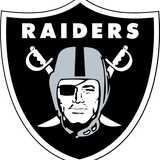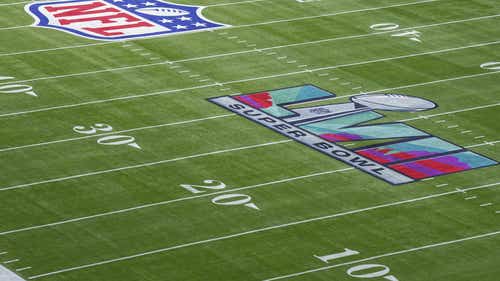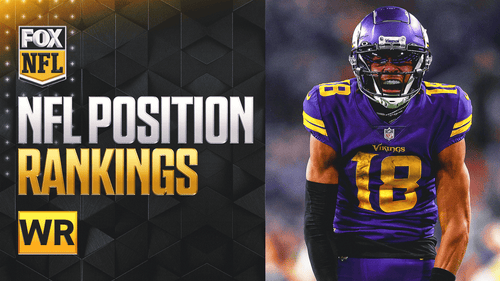
Hall of Famer Ron Mix says San Diego will miss Chargers if they move

Amid all the talk about the St. Louis Rams and Oakland Raiders gearing up for a Los Angeles homecoming starting next season, it's seemingly forgotten that the San Diego Chargers, also official candidates for relocation as of Monday, once played in LA, too.
The Chargers, of course, weren't long for Los Angeles, as they only played the 1960 season at Memorial Coliseum. That was the AFL's inaugural year, and by the 1961 campaign, the team had moved 125 miles south.
The history is still there, and for longtime Charger Ron Mix, a Hall of Fame offensive lineman and member of that original 1960 team, there's an interesting juxtaposition between the attitude in LA when the team initially left and the sentiment among fans in San Diego now that the team appears poised to return some 55 years later.
"The big difference is that LA was glad San Diego stole the Chargers from them," Mix, 77, told FOX Sports in a phone interview Tuesday. "But here, we in San Diego are unhappy that LA is taking the Chargers from us."
In 1960, many fans didn't know what to think of the upstart AFL, other than to assume that it couldn't possibly compete with the more established NFL for long. That was evidenced by an average attendance of 15,665 at Chargers games during the team's first season and the NFL's willingness to let first-rate talent like Mix test out the AFL in the first place.
"It was a new league, and the perception was that it was a minor-league team, and sports fans, historically, really don't support minor-league teams," Mix said. "But they were quite wrong. The NFL, at that time, didn't believe that the AFL would last, so they made no effort to compete for the best college players that existed.
"Even that first year, we were excellent," Mix continued of the '60 team, which went 10-4 and lost to the Houston Oilers in the AFL Championship Game. "But the problem was convincing the people of Los Angeles of that, and they were not convinced because they hardly showed up. We would play games in front of 8,000 or 9,000 people.
"Fortunately for us, the owner was Barron Hilton, who was an excellent owner and very generous. He did everything on a first-class basis, and he probably treated us better than NFL teams were treating their players. He certainly paid us more."
As it turned out, Hilton's determination to invest in talent rather than acquiesce to the wants of the NFL is what brought players like Mix into the fray in the first place.
Coming out of USC, the LA-area native Mix was the 10th overall pick by the Baltimore Colts of the NFL. The Boston Patriots took Mix in the AFL Draft, then sent his rights to Los Angeles, and while his preference was to play for the defending NFL champion Colts, the Chargers made him an offer he simply couldn't refuse.

Mix initially wanted to play for the NFL's Colts, but the AFL's Chargers paid better.
"(Baltimore) offered me a one-year contract, not guaranteed, $1,000 bonus and $7,500 for the season," Mix said. "Now, I know that sounds like nothing now -- the guys on the corner selling oranges make that -- but back then, that's what they were paying. Then the Chargers offered me a two-year guaranteed contract at $12,000 a year, plus a $5,000 bonus."
At that time, players weren't represented by agents, so Mix tried to negotiate on his own behalf, to no avail. Such was the perceived power of the NFL.
"I told Carroll Rosenbloom, the (Colts) owner, that I'd rather play for Baltimore if he would just give me a $2,000 bonus and a $10,000 contract, doesn't have to be guaranteed," Mix recalled. "I was kind of confident in my ability and felt that I'd be successful no matter where I played, but he said, 'Ron, that's Johnny Unitas money. That disrupts our entire salary system.' "
Decades later, Mix and Unitas ended up being inducted into the Hall of Fame in the same year, 1979, but at the time, no one foresaw the success of either Mix or the AFL.
"He said, 'Look, that entire league is going to fold,' " Mix added of Rosenbloom. "He said, 'You'll have a year's experience, and we'll see you next year.' "
Mix never anticipated a long career in either league -- he wanted to be a high school teacher and only hoped to play "one or two" years to save money for a car and a house -- so he joined the Chargers with no expectation that he'd become a franchise legend. After that first year in LA, however, Mix said he'd "fallen in love with pro football," and when the Chargers announced their relocation to San Diego, he was eager for the move.
"When you'd go out to warm up an hour before the game, there was nobody in the stands," Mix said of LA. "We outnumbered people in the stands because people came late, and it was just discouraging to see only 10,000, 12,000 people in the stands (for games).
"The attendance grew as time went on because we had a good product and we had the top names in college football, but it was still discouraging, and word coming out of San Diego was that they really wanted us and were already selling tickets. And everything they said about it turned out to be true."
In fact, Mix didn't need to play a snap in San Diego to feel the excitement building around the team.
"Not once in Los Angeles, as a player, was I ever recognized," Mix said. "Not a single time. But when I drove to San Diego and stopped at a gas station before I got to training camp, the gas station attendant recognized me because the newspaper had been publishing our pictures on a regular basis. And that's a good feeling."
The Chargers went on to reach the AFL championship in four of their first five seasons in San Diego, winning once, in 1963. Mix, meanwhile, spent 10 years with the franchise before playing one final season with the Raiders -- at the time in Oakland -- in 1971, and became ingrained in the San Diego community.
"Even today, if you talk to fans who existed back in the '60s and have continued to be fans, and you ask them what were your favorite time period for the Chargers, they'd say they '60s," said Mix, known in his playing days as the Intellectual Assassin.
"We didn't make a lot of money as players, so guys worked in the offseason in the community, and a lot of us went to school. I went to law school at night while I was playing. So we were out, active in the community, and I would say that we, as a team, probably met half the people that attended every game -- and we drew about 30,000, which was about the stadium maximum."

Mix played 10 of his 11 NFL seasons with the Chargers.
These days, the Chargers, as they struggle on the field, draw more than double what they did after their move to San Diego, but it's not expected to be enough to keep the team in town. And while that's a frustrating reality for the team's die-hard supporters, it's a decision Mix, now an attorney in the San Diego area, says he understands.
"I don't have any complaints about the Spanos family because they're moving," Mix said. "They honored their obligation; they signed a 20-year lease and fulfilled it. This is a business, and candidly, as businesspeople, they'd be foolish not to move north because all the experts say that the value of the franchise doubles."
Still, as the Chargers prepare to return to their original "home," they'll leave behind a crushed fan base -- one that includes one of the team's all-time greats.
"Experts also tell us that a team really does not bring a financial benefit to a city -- that's just an accepted fact no matter what is said by others," Mix said. "But I think it does bring something special and helps the overall psyche of a city. It gives young people athletes to emulate -- hopefully the good qualities -- and I think it has an important contribution to the community. I know I'll miss them."
You can follow Sam Gardner on Twitter or email him at samgardnerfox@gmail.com.










